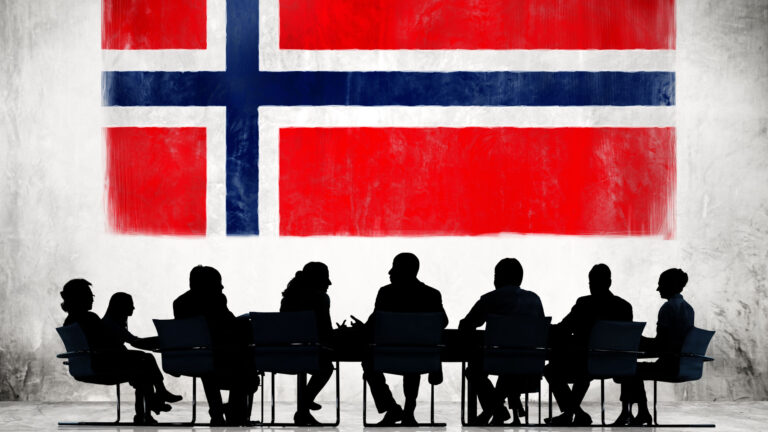Standing up for yourself and your colleagues in the workplace by reporting wrongdoing or misconduct is known as whistleblowing. Here’s how it works in Norway.
We have all read stories about whistleblowers in the media. They are brave people who stand up for others and make a difference. And quite often at a high cost.

But did you know that reporting serious offences in Norway is an obligation vested in law? Because whistleblowing is crucial to keep work environments safe and to prevent unhealthy leadership.
It is also important to our democracy, to prevent fraud and corruption and even to maintain national security.
So how does it work in Norway? And is it safe?
It’s your right and obligation
Firstly, everyone working in Norway has the right to notify censurable conditions. On the other hand, it is also our duty, meaning you actually have no choice if the matter is serious enough. This also includes temporary employees hired from agencies.
All of this is vested in the Working Environment Act.
What is not whistleblowing?
Not everything is considered whistleblowing. Exceptions are conditions that only apply to your own employment, and that can be solved without a formal process.

For example salary requirements, wanting your own office, or not getting leave of absence. This is usually not considering whistleblowing, unless it for example affects your working environment negatively.
So what are censurable conditions?
This has a very wide range and some examples are:
- Danger to life or health
- Accidents caused by working conditions
- Danger to climate and the environment
- Corruption and fraud
- Abuse of authority
- Discrimination
- Unsatisfactory working environment
- Bullying
Collect evidence
If you consider reporting censurable conditions it is smart to collect as much evidence you can. Save letters and e-mails and other documentation. It is not illegal to record conversations, and it could even be used as evidence in court.
Notification systems and procedures
If a company has more than five employees, it is obliged to have procedures for internal notification.
Read more: Workplace Discrimination in Norway
It is also common to have a separate notification channel that you can access from the website. In other cases you have to send an email or a letter.
What determines if something is whistleblowing?
In short: the content. Neither the format nor the wording should matter. But a smart thing to do is not to leave any room for doubt. And to make it clear that this is a notification.
This is because the employer can misunderstand that it is actually whistleblowing and therefore not initiate the formal notification procedure. And, frankly some also try to get away with dismissing the notification as something less serious than it really is.
So don’t leave room for doubt!
To avoid misunderstandings, a smart thing to do is to include the word “varsel” (in Norwegian) “whistleblowing” or “notification of censurable condition” in the heading.

Another good idea is to relate your notification to specific examples in the Environment Act. If you think there is workplace bullying taking place, use the word “bullying”.
And if the behaviour leads to a bad working environment, use the examples from the Environment Act directly; “unsatisfactory working environment”. And if this affects other people too, it is important to state that clearly.
Be precise and credible
It is not very smart to speak from the heart with all caps. Nor to be indirect and with connotations.
Try to describe the matter as precisely as you can and say why you think this is serious. Enclose documentation and let them know if other people can confirm what you are saying.
To whom can you report?
- The employer, usually someone in the management
- Union or safety representative
- A lawyer
- The Norwegian Labour Inspection Agency
- Other public authority
- The police in cases of criminal offences
- The media
Should you involve the media?
Involving the media should be done with caution. But this can be an option if the matter has public interest. And sometimes media is an option if you already have sent a notification internally without the employer taking responsibility or initiating change.
Going to the media should be very safe. The Norwegian media has a strict ethical code which includes protection of sources. But remember that they may not end up writing about the story.
Is it possible to be anonymous?
Yes, you don’t have to give your name. But this may make it harder for the employer to follow up the matter.
What are the employer’s obligations?
The Law states the employer shall ensure that the notification is adequately investigated within a reasonable time. It is fair to say that wording seems rather vague and relative.

It is, however implicit, that the people who handle the notification are impartial. And that all sides of the story should be heard. Some companies also involve someone from outside to investigate in order to get a completely objective evaluation.
Retaliation
Retaliation towards whistleblowers is illegal. And it has recently been reinforced in the Working Environment Act.
Retaliation is any unfavourable act or punishment against the whistleblower. For example: warnings, suspension or disciplinary action. But also things like social exclusion or discrimination.
So is it safe?
I wish I could say yes. Because the majority of employers are fair and serious, and there is a law that gives whistleblowers considerable protection.
But despite all political intentions, I have talked to many whistleblowers in Norway, who feel they are not taken seriously, that they spoke up with no result or that they have been the target of some sort of retaliation. And almost everybody underestimates the emotional stress it causes.
There are also means of retaliation that are subtle and hard to prove. For example leaving you without interesting work, or giving you tasks you don’t handle well. When these have plausible explanations on paper, it is very hard to prove.
On the other hand, it can be as difficult not to speak up. So I wouldn’t discourage it, but be aware that it probably won’t be easy. A good idea is to join forces and send a formal notice together with one or more of your colleagues.
Who can help you in cases of retaliation?
And if you feel you have been exposed to retaliation, there are people that can help you.
Union representative
If you are a member of a trade union, they can give assistance, and probably also get legal advice.
The Anti-Discrimination Tribunal
You can send your case to the Norwegian Anti-Discrimination Tribunal. They are a neutral party and a free alternative to judicial proceedings in cases of discrimination, harassment and retaliation.
The Norwegian Labour Inspection Authority
They can answer questions about the prohibition against retaliation after notification. And you can also send a notification to them directly.
Special interest groups
In many cases, special interest groups can also be a good source of information, advice and help. Social media could be a good place to talk to other people in the same situation.

